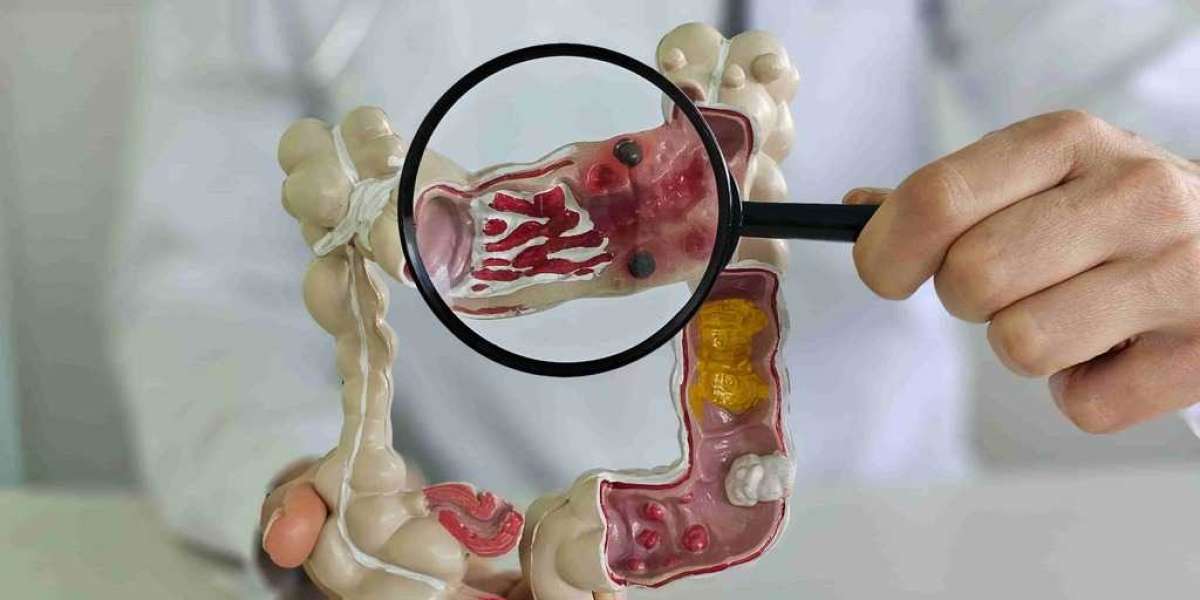Anal cancer is a relatively rare but severe condition that affects the tissues of the anus. The treatment and management of anal cancer require specialized care, particularly from a Colorectal Surgeon in Glendale. Dr. Armen Gregorian, MD, is a highly experienced colorectal surgeon who provides expert care in diagnosing, treating, and managing anal cancer. This article explores the nature of anal cancer, the role of a colorectal surgeon in its treatment, and the various options available for patients.
What Is Anal Cancer?
Understanding the Basics
Anal cancer occurs when malignant cells form in the tissues of the anus. The anus is the opening at the end of the digestive tract through which stool exits the body. Unlike colorectal cancer, which affects the colon and rectum, anal cancer specifically targets the anal canal. Although it is less common, its incidence has risen recently. Early detection and treatment by a Colorectal Surgeon in Glendale, like Dr. Armen Gregorian, MD, are crucial for improving outcomes.
Risk Factors for Anal Cancer
Several factors can increase the risk of developing anal cancer, including:
- Human Papillomavirus (HPV) Infection: HPV is a significant risk factor for anal cancer. Vaccination and regular screening can help reduce the risk.
- Age: The risk of anal cancer increases with age, particularly in individuals over 50.
- Smoking: Tobacco use has been linked to an increased risk of various cancers, including anal cancer.
- Immunosuppression: Individuals with weakened immune systems, such as those with HIV, are at higher risk.
- History of Other Cancers: A history of cervical, vaginal, or vulvar cancer may increase the likelihood of developing anal cancer.
A Colorectal Surgeon can assess individual risk factors and recommend appropriate screening and preventive measures.
The Role of a Colorectal Surgeon in Treating Anal Cancer
Diagnosis and Staging
The first step in treating anal cancer is accurate diagnosis and staging. A Colorectal Surgeon performs a thorough evaluation, which may include a physical examination, imaging studies (such as MRI or CT scans), and a biopsy of the anal tissue. Staging the cancer, which involves determining its size and whether it has spread, is critical for developing an effective treatment plan.
Treatment Options
The treatment of anal cancer typically involves a combination of therapies, depending on the stage of the cancer and the overall health of the patient. The primary treatment options include:
- Chemoradiation: The standard treatment for most anal cancers is a combination of chemotherapy and radiation therapy. This approach can effectively shrink the tumor and eliminate cancer cells. A Colorectal Surgeon coordinates with oncologists to ensure that chemoradiation is tailored to the patient’s needs.
- Surgery: In cases where the cancer is not responsive to chemoradiation or if it recurs, surgery may be necessary. Surgical options include:
- Local Excision: For small, early-stage tumors, the surgeon may perform a local excision, removing the tumor and some surrounding healthy tissue.
- Abdominoperineal Resection (APR): An APR may be required in more advanced cases. This procedure involves removing the anus, rectum, and part of the sigmoid colon, with a permanent colostomy created to allow waste to exit the body.
- Targeted Therapy: Sometimes, targeted therapy drugs may attack specific cancer cells without harming normal cells. This approach is often used with other treatments and monitored by a Colorectal Surgeon.
Post-Treatment Care and Monitoring
After treatment, ongoing care and monitoring are essential to detect any signs of recurrence and manage side effects. A Colorectal Surgeon provides regular follow-up care, including physical exams, imaging studies, and possibly additional biopsies, to ensure the cancer has not returned and to manage any long-term treatment effects.
Importance of Early Detection
Screening and Prevention
Early detection of anal cancer significantly improves the chances of successful treatment. Regular screening is essential for individuals at higher risk, such as those with HPV infection or a history of other cancers. A Colorectal Surgeon in Glendale can perform routine screenings, including digital rectal exams and anoscopy, to detect any abnormalities early on.
Symptoms to Watch For
Common symptoms of anal cancer include:
- Rectal bleeding
- Persistent pain or pressure in the anal area
- Unusual discharge from the anus
- Lumps near the anus
- Changes in bowel habits, such as narrowing of stool
If any of these symptoms are present, it is essential to consult a Colorectal Surgeon immediately for a thorough evaluation.
FAQs
Q1: How is anal cancer different from colorectal cancer?
Anal cancer affects the tissues of the anus, while colorectal cancer affects the colon and rectum. A Colorectal Surgeon can explain the differences in symptoms, diagnosis, and treatment.
Q2: Is surgery always necessary for treating anal cancer?
Not always. Many cases of anal cancer can be treated effectively with chemoradiation alone. Surgery is typically reserved for cases where other treatments are not successful.
Q3: Can anal cancer be prevented?
Vaccination against HPV and regular screening for those at risk can help prevent anal cancer. A Colorectal Surgeon can guide preventive measures.
Q4: What are the long-term effects of anal cancer treatment?
Some patients may experience changes in bowel habits, sexual function, or urinary function after treatment. A Colorectal Surgeon will monitor these effects and provide appropriate care.
Q5: How often should follow-up visits occur after treatment?
Follow-up schedules vary depending on the stage of cancer and the treatment received. Typically, patients will initially have check-ups every 3-6 months, then less frequently over time.
Conclusion
Anal cancer is a severe condition that requires expert care from a specialized professional. A Colorectal Surgeon in Glendale, like Dr. Armen Gregorian, MD, is essential in diagnosing, treating, and managing anal cancer effectively. By understanding the role of a colorectal surgeon and the available treatment options, patients can approach their care confidently and receive the best possible outcomes. Early detection and comprehensive treatment are essential to successfully managing anal cancer and maintaining quality of life.







